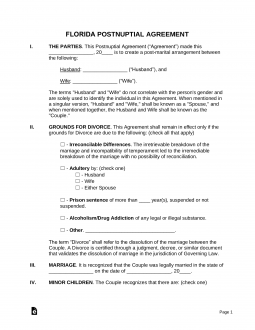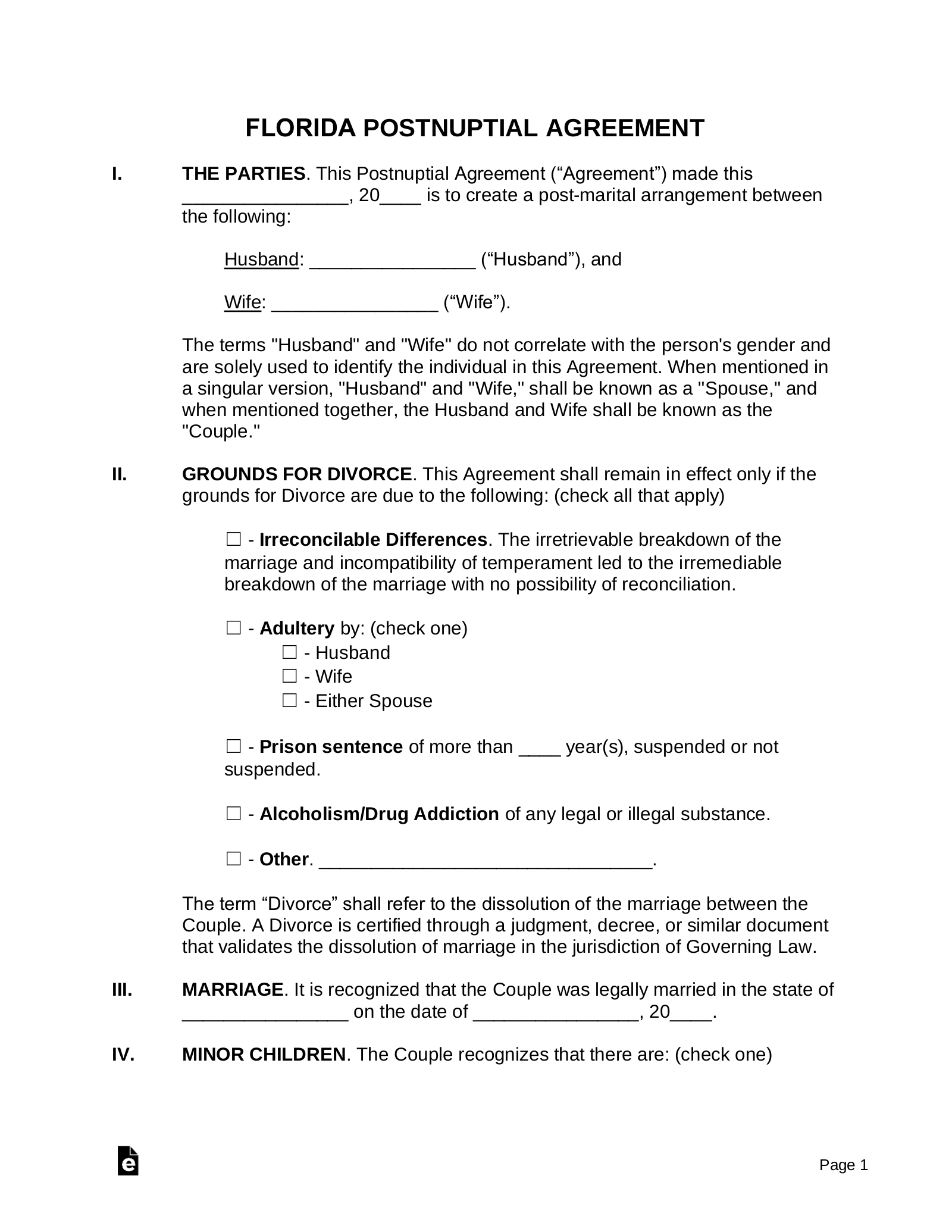Updated March 27, 2024
A Florida postnuptial agreement is a contract between two married people that establishes how to allocate some or all of their marital property if the marriage ends in divorce or death. Postnuptial agreements, sometimes called marital agreements, are different from prenuptial agreements, often called prenups. While prenuptial agreements are signed before a marriage begins, postnuptial agreements are executed after the couple is already married, sometimes years after. However, in Florida, if the agreement is created in anticipation of an imminent divorce, it is generally called a separation agreement and may face different requirements.
Enforceability
In dissolution proceedings, postnuptial agreements regarding alimony and marital property are enforceable. There are, however, two separate grounds by which either spouse may challenge such an agreement and have it vacated or modified:[1]
- A spouse may set aside or modify an agreement by establishing that it was executed under fraud, deceit, duress, coercion, misrepresentation, or overreaching.
- A spouse may not conceal or provide inadequate information about their finances to the other spouse. When a postnuptial agreement does not adequately provide for one spouse, this creates a presumption that the agreement resulted from concealment or inadequate knowledge.
Counsel
A postnuptial agreement will not be set aside solely because one or both parties were not represented by counsel.[2]
Prenup vs Postnup
Case law from Florida indicates that the same standards should judge postnuptial agreements as prenuptial agreements.[3] But these cases were all decided before Florida adopted new laws for prenuptial agreements. However, cases decided since the adoption of these new laws have continued to rely on the older cases to evaluate postnuptial agreements.[4]


